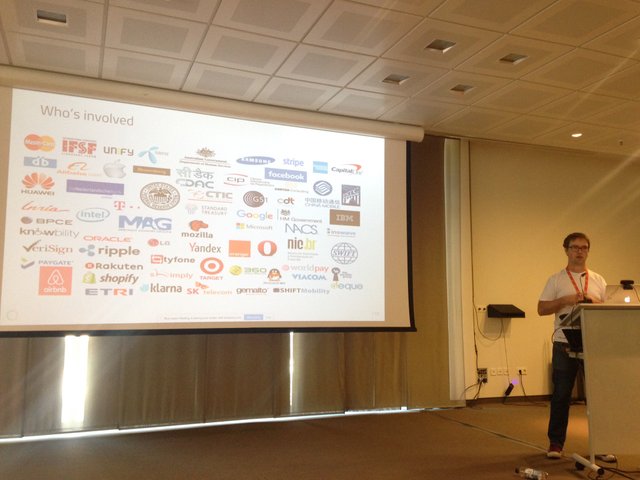InterLedger: A Payments Revolution
We don't worry about a text or an e-mail going through the system and it should be the same with money. That is the basic idea behind Interledger, also known as the InterLedger Protocol or ILP. The effort, initiated by Stefan Thomas and Evan Schwarz aims at developing a standard for payments, the same way TCP/IP is a standard for data.
I do not intend to go into the technicals within this post and would advise you to read their whitepaper and this article or ask me further in the comments if you have any questions.
The main issue of today's payments is: they work great, but only within their own network. In other words, one does not worry about sending money as long as the receiver does have an account in the same bank. Still, I'm not even sure my bank would process a 0.01 €EUR payment and it is, in itself, an issue.
Problems arise when value is to be sent across different networks a.k.a. different ledgers, different currencies and so on. This can be explained by the presence of associated costs, often referred to as friction. Banks, for instance, pre-fund accounts (Nostro/Vostro accounts) in other banks in order to be able to move their customers' money. Trillions of dollars are currently tied in such accounts.
Many think the solution to eliminate friction within payments is to have everyone agree on one ledger (= one network). This is obviously not going to happen, because the whole world is not going to accept US Dollars or Bitcoin as payment, and most people simply want to receive value under the form of their national currency, for practical purpose. There is more to it, especially about the US Dollar because transactions denominated in USD can simply be rejected by the Federal Reserve.
(This is why Bitcoin exists in the first place)
Back to InterLedger; Stefan Thomas, then CTO of Ripple, gave a presentation at the WeAreDevelopers World Congress 2018 to explain the use cases further. His approach really focuses on Web payments, a use case Steemit solves in its own way.
Hopefully, you understand by now what InterLedger is and what use cases it might solve. I would like to extend the article a little bit to provide some key-points that most people misunderstand.
InterLedger aims to become the Value highway, as much as the Internet is the Information highway. Data and Value are quite similar and share many characteristics, but the main difference is : one can copy paste information but not value. (You can't copy paste your bank account's balance, sadly)
The double-spend issues, famously known in Blockchain might be the equivalent of Copyrights, but that's a reflexion for another post.InterLedger is an open source project developed under the umbrella of the W3C (World Wide Web Consortium). Every company and developer can use it to build any kind of application on top of it. I'm pretty sure you will recognize some brands involved in the project. To further your reasearch about its implementation, I would advise to look up HyperLedger and Mojaloop.

InterLedger benefits XRP. True, but InterLedger is token-agnostic and it would benefit XRP only because the digital asset is able to settle in seconds, has liquid markets across many currencies and is supported by Ripple, a company able to efficiently support its development. As David Schwartz tweeted : "ILP will create a massive level playing field for systems to compete for use cases just as TCP did. If XRP can't win on a level playing field, it deserves to lose. Our strategy is not to trick or force people to use XRP."
Evan Schwarz ended this presentation with interesting questions. One of them being: Will interoperability bolster or kill app-specific tokens?
It is my opinion that it won't kill app-specific tokens, the same way the Internet didn't kill newspapers, even though offering free competition in content creation did not help them gain marketshare, quite the contrary. What matters here is that Internet changed our behavior towards information.
I do believe Ripple is to become the Google of Value, but I certainly don't forget all the businesses that flourished thanks to the Internet : Amazon, Uber, Netflix, Facebook, Twitter... All of these use the very basic TCP/IP protocols in order to exchange information with their partners and users, but their value lies in the services they offer, not in the data itself.
When applied to Steemit, one could for instance implement direct pay-out to either a bank account, a crypto wallet or pretty much anything one uses to store value. It could also improve the experience when it comes to refuelling Steem/Steempower in your account by offering more options. Anyways, I guess @justinsunsteemit is already aware of InterLedger.
PS: my dream InterLedger use case would be having a self-driven Tesla available as an Uber. I would somehow pay the car and InterLedger would pay the company in whatever currency they might want. No middlemen, just a company letting Tesla vehicles drive themselves and users able to tell them where to go. (InterLedger is also part of the SOFIEinitiative for IoT devices)
I hope you found the article interesting and look forward to answer any questions you might have!
Congratulations @john-snow123! You have completed the following achievement on the Steem blockchain and have been rewarded with new badge(s) :
You can view your badges on your Steem Board and compare to others on the Steem Ranking
If you no longer want to receive notifications, reply to this comment with the word
STOPTo support your work, I also upvoted your post!
Vote for @Steemitboard as a witness to get one more award and increased upvotes!